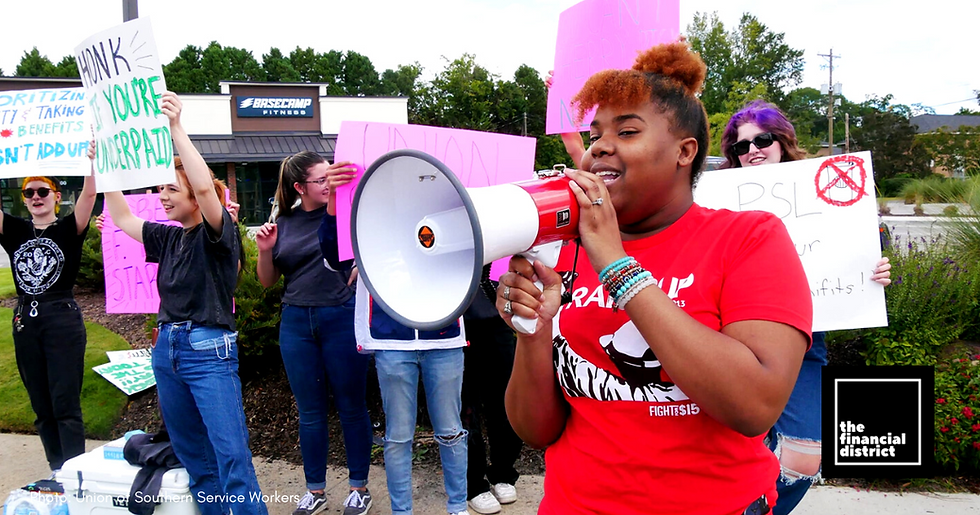U.S. Service Workers Across The South Launch Union
- By The Financial District

- Nov 23, 2022
- 2 min read
Service workers from across the US South signed union cards Saturday (Sunday, Nov. 20, 2022, in Manila) at the conclusion of a three-day summit in Columbia, South Carolina, where they agreed to join forces to combat exploitative corporations and the politicians who enable them, Julia Conley of Common Dreams reported for Raw Story.

Photo Insert: The USSW includes people from a variety of jobs and workplaces "because companies across the South employ a low-wage, high turnover model," said the group.
"Workers across states and workplaces in the South will become an unstoppable force," they said.
The workers—who are employed at fast food restaurants, gas stations, retail stores, and other workplaces—joined the Union of Southern Service Workers (USSW), part of the Service Employees International Union (SEIU) and an affiliate of the nationwide economic justice group Fight for $15.
"With eyes wide open to the past and immense hope for a better future, we are building a union to fight for living wages, fair working conditions, and a voice on the job," said Brandon Beachum, a Panera Bread worker from Atlanta.
"We're coming together and digging in for the long haul as a union because collective action is the best solution to improve our lives and support our families." The unionized workers held up their signed union cards while chanting, "We're fired up, can't take no more!"
The South has the lowest union density of any region in the US, with just 6% of workers represented by a collective bargaining unit. In South Carolina, only 1.7% of employees belong to a union.
Meanwhile, preemption laws—largely passed by majority-white legislatures across the South—have kept cities from raising wages for decades, leaving workers across the region struggling to make ends meet while earning as little as $7.25 per hour, even as more than 40% of the country lives in places where voters and lawmakers have approved a $15 per hour minimum wage.
The USSW includes people from a variety of jobs and workplaces "because companies across the South employ a low-wage, high turnover model," said the group. "It is virtually impossible for fast food, care, retail, warehouse, and other workers to join a union through existing rules," the USSW said.
![TFD [LOGO] (10).png](https://static.wixstatic.com/media/bea252_c1775b2fb69c4411abe5f0d27e15b130~mv2.png/v1/crop/x_150,y_143,w_1221,h_1193/fill/w_179,h_176,al_c,q_85,usm_0.66_1.00_0.01,enc_avif,quality_auto/TFD%20%5BLOGO%5D%20(10).png)











